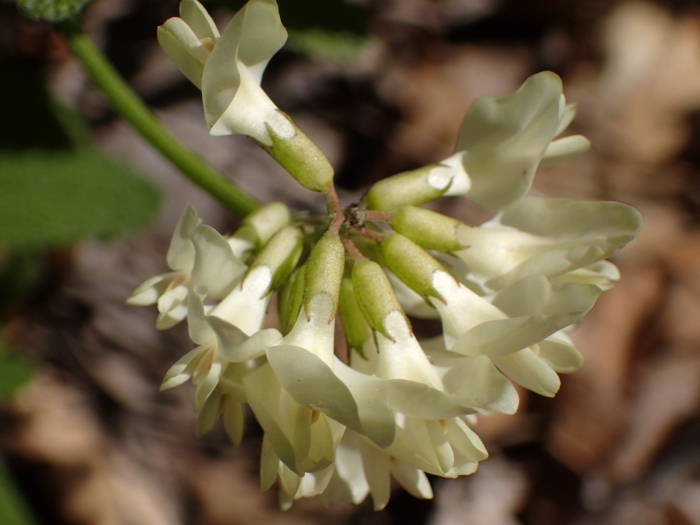Santa Barbara Milk Vetch
(Astragalus trichopodus)
Santa Barbara Milk Vetch (Astragalus trichopodus)
/
/

George Williams
CC BY 4.0
Image By:
George Williams
Recorded By:
Copyright:
CC BY 4.0
Copyright Notice:
Photo by: George Williams | License Type: CC BY 4.0 | License URL: http://creativecommons.org/licenses/by/4.0/ | Rights Holder: George Williams | Publisher: iNaturalist | Date Created: 2022-02-17T10:41:10-08:00 |
























Estimated Native Range
Summary
Astragalus trichopodus, commonly known as Santa Barbara milk vetch, is a perennial herb native to the chaparral, coastal sage scrub, and open woodlands of southern California and Baja California. It thrives in the diverse ecosystems of the Transverse Ranges and the Mojave Desert. This species typically grows up to 3 feet tall, featuring hairy stems and pinnately compound leaves with lance-shaped leaflets. During the flowering season from March to May, it produces racemes of cream-colored flowers that are sometimes tinged with purple, which are moderately showy and attract pollinators. The plant is notable for its laterally compressed legume pods, which can grow up to 2 inches long and hang in bunches, containing numerous seeds.
Santa Barbara milk vetch is valued for its drought tolerance and ability to adapt to poor soils, making it suitable for xeriscaping and restoration projects. It is also used in native plant gardens and as a forage plant for wildlife. In cultivation, it requires minimal water once established, prefers well-drained soils, and can tolerate full sun to partial shade. There are no widely popular garden cultivars of this species. While generally low-maintenance, it can be susceptible to root rot in poorly drained soils.CC BY-SA 4.0
Santa Barbara milk vetch is valued for its drought tolerance and ability to adapt to poor soils, making it suitable for xeriscaping and restoration projects. It is also used in native plant gardens and as a forage plant for wildlife. In cultivation, it requires minimal water once established, prefers well-drained soils, and can tolerate full sun to partial shade. There are no widely popular garden cultivars of this species. While generally low-maintenance, it can be susceptible to root rot in poorly drained soils.CC BY-SA 4.0
Plant Description
- Plant Type: Shrub, Herb
- Height: 0.75-3.25 feet
- Width: 1-5 feet
- Growth Rate: Moderate
- Flower Color: White
- Flowering Season: Spring, Summer, Winter
- Leaf Retention: Semi-deciduous
Growth Requirements
- Sun: Full Sun
- Water: Low
- Drainage: Fast
Common Uses
Drought Tolerant, Low Maintenance, Showy Flowers
Natural Habitat
Native to chaparral, coastal sage scrub, and open woodlands of southern California and Baja California
Other Names
Common Names: Locoweed, Trailing Rattleweed, Rattleweed
Scientific Names: , Astragalus trichopodus, Astragalus trichopodus subsp. antiselli, Astragalus trichopodus subsp. trichopodus, Phaca canescens, Phaca trichopoda, Phaca trichopoda, Tragacantha trichopoda,
GBIF Accepted Name: